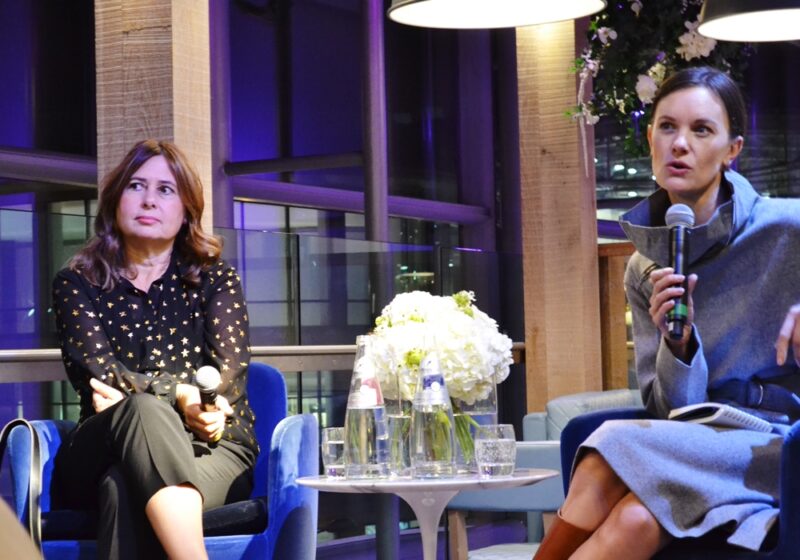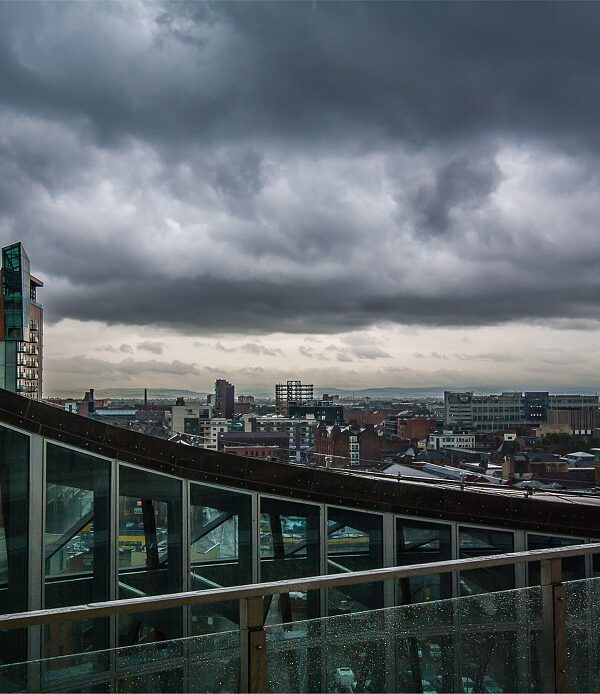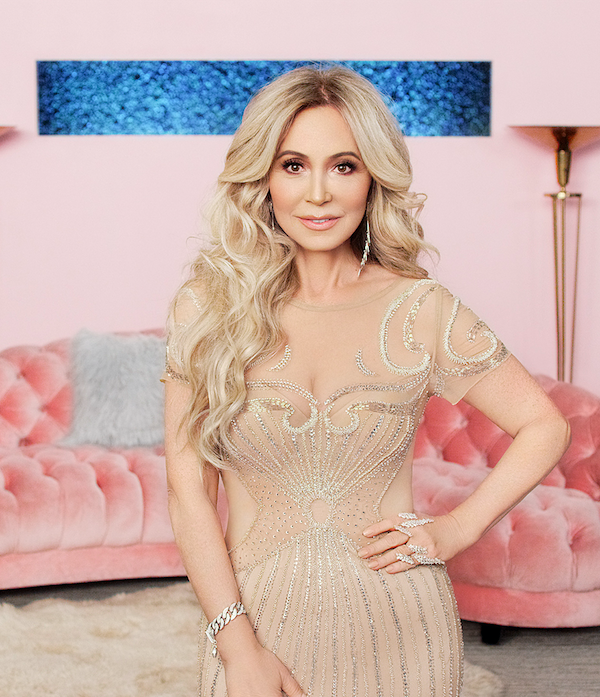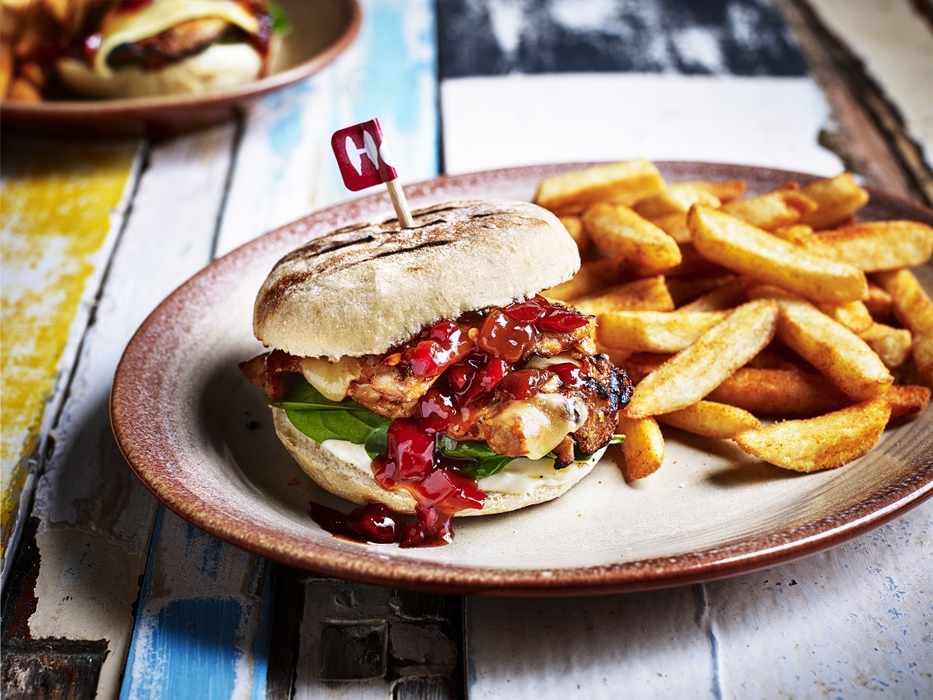Truly inspiring to the fashion elite and those wanting to break through in editorial, Alexandra Shulman sets aspirational standards that mere mortals only hope of achieving in their careers. STYLE etc. was graciously invited to Selfridges Exchange Square to attend Alexandra Shulman in conversation with Jo Ellsion, Financial Times Fashion Editor.
Recently featured in somewhat controversial BBC2 documentary ‘Absolutely Fashion: Inside British Vogue‘, Alexandra had social media platforms buzzing with discussion after a questionable portrayal by the narrator who seemed to scoff at the fashion industry and deemed Shulman as a lonely, Miranda Priestly type.
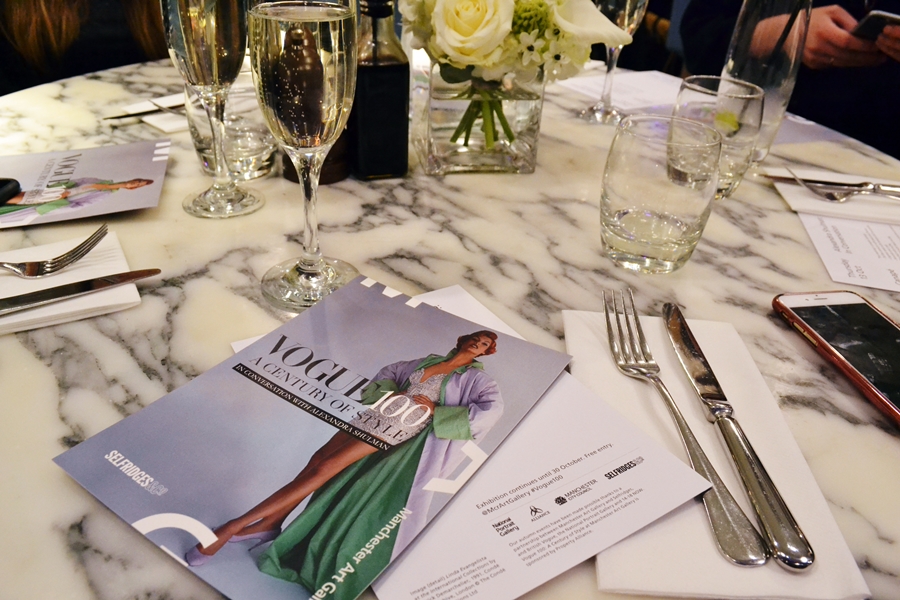
Meeting Alexandra in the flesh, it is clear the document was heavily edited to provoke audience reaction and the woman herself had the entire room transfixed on every word she spoke. A true inspiration to women in business and fashion, Alex shows herself to be savvy on the changing platforms for magazine editors, tackling relevant topics throughout the interview by Jo and then voluntary questions from the floor.
We couldn’t articulate Alexandra’s words better than the woman herself so decided to highlight key topics from the interview to share with you.
Alexandra on the changing role of the Magazine Editor:
Alexandra: The work of any journalist now is probably a lot more than it was in 1992. In 1992 I had 12 issues a year of magazines to produce and that was basically it, apart from fashion shows and you were a brand ambassador but you didn’t have any digital, didn’t have any of the 24 hour news, the video, a festival or events like Fashion Night Out. It was a much smaller fashion network to engage in aswell. When I think back all of the brands that are out there on that floor (in Selfridges) were not being sold and were not names people had heard of. The growth of both the high street and high fashion in the last 20 years has been massive.
Alexandra on how Vogue stays relevant:
A: There was very little competition in 1992 and now there’s a lot. Not only magazines but newspaper fashion supplements and obviously online commentary with bloggers and there are even the brands and the retailers who produce their own magazines, so I guess the biggest challenge for me at the moment is that our slogan is ‘Vogue Fashion Bible’ and we don’t just get to be a Fashion Bible and sit there, we’ve got to keep making sure we’re worthy of that title.
I think that the history is really important in that that we do have that huge backlog of authority and knowledge that we can draw on. Things like the Vogue 100 Exhibition are important for Vogue because it made a whole new audience of people who maybe don’t buy Vogue but did go see the exhibition and, I hope, start to look at the magazine in a different way.
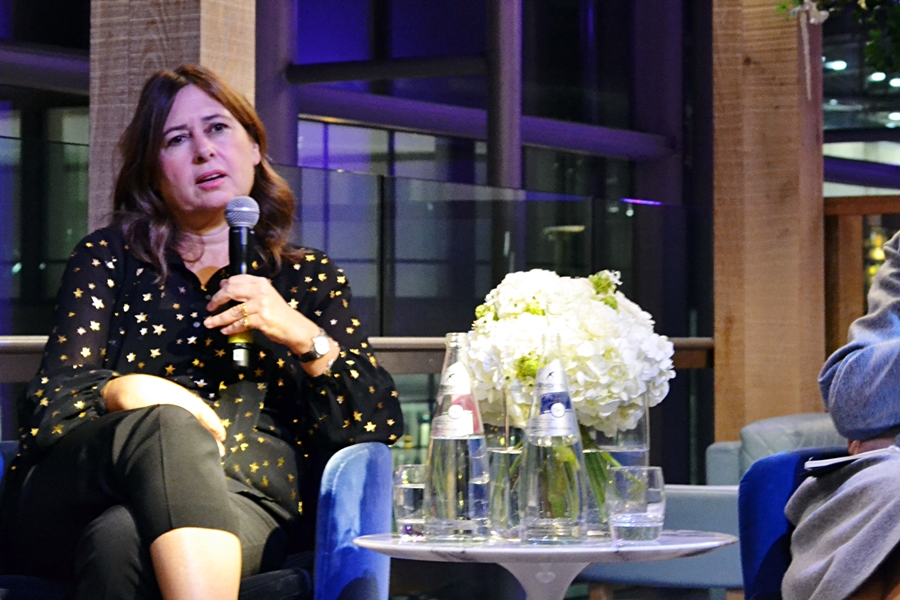
Alexandra on deciding Content for Print and Digital:
A: You really have to carve out the territory of digital and print. You take something that’s happening , like this event tonight, my website could cover but print couldn’t. Something like a Mario Testino fashion shoot, we would never put online, because it is all about the fantastic images and the production values of the magazine. It isn’t easy when you’re used to working on one schedule and then suddenly you’ve got a 24 hour site to work on but I have a fantastic editor of the website who runs it on a daily basis and decides the news stories of the day, so I don’t get involved in that.
Alexandra on Negotiating:
A: If you’re an editor, probably the biggest part of your job is negotiating with someone , it could be a photographer, a writer, a member of staff or my bosses. That is probably the biggest thing that I do and with negotiating you have to decide what it is you really care about . You can’t fight every battle. In the book I have tried to be as honest as I possibly could be without offending people. I do write about how I feel and how frustrating it can get, but we do usually get there.
One thing I don’t have is total control, a photographer is an artist and they are bringing their own view and sometimes what they bring and what I want are not the same but if I want to work with really good people I have to respect their integrity too.
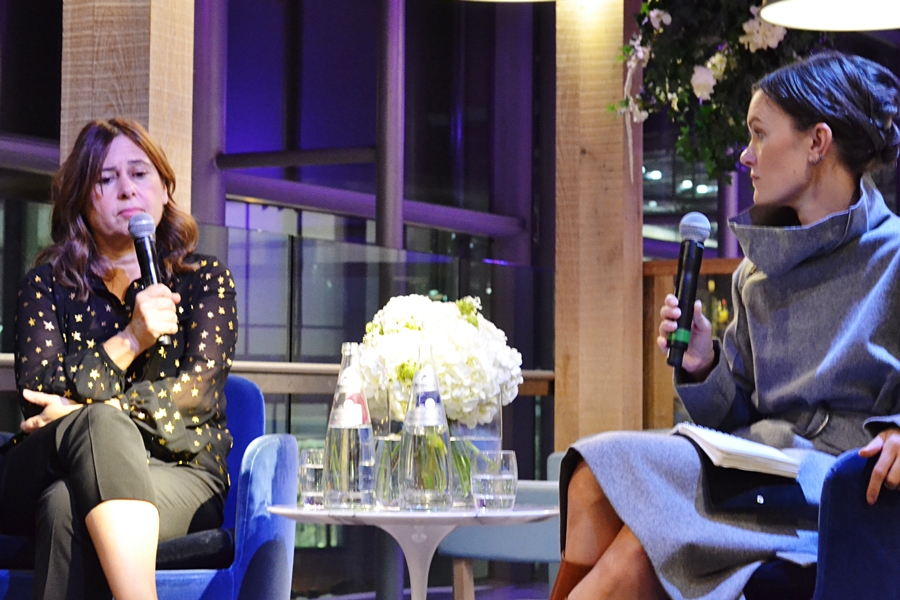
Alexadnra on Vogue’s 100 Year Celebration
The Birthday celebrations were 4 years in the planning so it had been quite a build up. The 100th Year had to be a year that made people want to buy the magazine, a year that made people feel that Vogue was part of the future not the past. I decided to keep a diary of the process, of the whole year. I knew we would be having a TV crew filming (for the 100 Year Anniversary) so I thought I diary would be a nice way of having my right of reply, so I don’t feel as impotent about what was shown (on the documentary).
Alexandra on having Duchess of Cambridge Kate Middleton as a Vogue Cover
When I learned we were going to have the Duchess of Cambridge for our Centenary issue that was a huge help. I felt, this is the first time she has been photographed and we’ve got it. We thought about how did people want to see the Royal Family and that was, in part, the reason why we photographed her the way we did. We photographed the Duchess in the clothes that she would normally wear, we didn’t choose wonderful ballgowns or clothes she wears on a Royal Tour, because we decided, her and us, that the clothes were to reflect her the way she thought she was as a person, not as the construct so much as a Duchess.
Alexandra on that BBC2 Documentary
A: I wanted the result to be something which I thought would be interesting, to show the magazine as the magazine is and I think it did that. I don’t particularly like the way it showed me but it showed a lot of other things in the magazine. I never thought it would be that kind of gentle, more artistic thing, I knew it was going to be more plonk, plonk, plonk. Maybe not quite as much as it came out.
Richard the narrator followed us around for 9 months and the documentary was 2 hours so the edit was enormous. I was surprised by what he chose to put in and what he chose to leave out, I thought it was pretty representative of Vogue, I didn’t think it got across the kind of humour in the office, it’s a lighter place than he portrayed it as. But at the same time I think he was trying to make it sound like it wasn’t this foolish world of fashion. I was pleased about that but there were a lot of things I wasn’t pleased about.
I had already made a compromise on the Kate Moss cover shoot which wasn’t covered in the documentary. The whole idea was that Kate was meant to be in Rolling Stones archive costumes as there was this great exhibition in London, but at the same time Vogue relies on putting in contemporary fashion people can buy, so the original idea had been to mix the Rolling Stones clothes with contemporary clothes and on the cover we were going to have something people could go out and buy. On the day the team all decided they didn’t want to shoot any contemporary clothes so it was all Jagger catsuits so I was already like “Oh my God how am I going to deal with this, she’s in an old Sticky Fingers T Shirt.
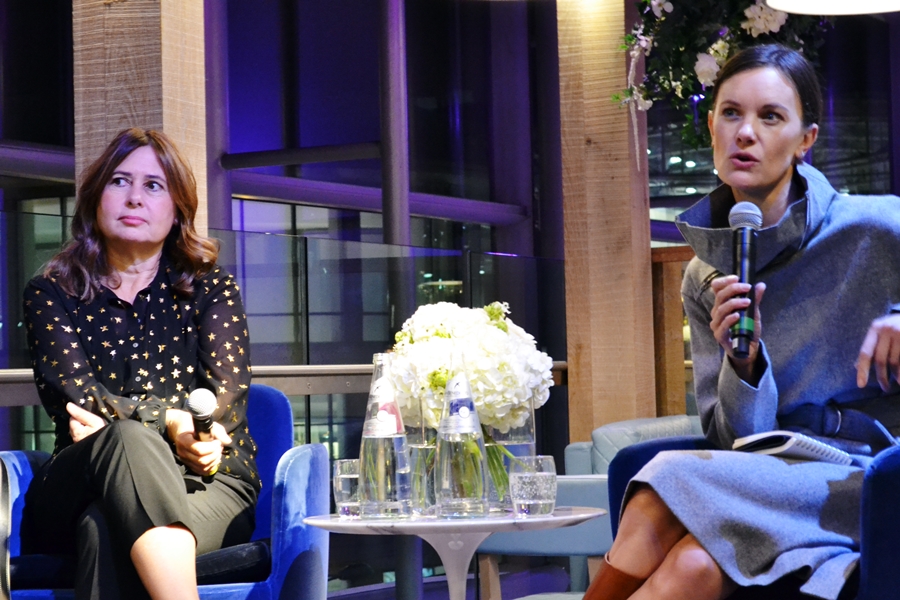
Alexandra on not having full Control:
A: The Fashion Editor has a view and if I hire them I do so because I like their style and respect what they bring. A good example is when we shot Victoria Beckham for a previous cover, the team were looking through the rails of clothes she was going to be photographed in and I picked out this Ralph Lauren dress and I said to Kate my fashion editor there’s a lot of coats on this rail and I don’t want her in a coat on the cover and lo and behold what was the cover picture? They shot her in a coat.
Alexandra on Brand Advertising:
A: Everyone knows with fashion magazines the revenue primarily comes from advertising rather than circulation, I’ve been incredibly lucky at Vogue that the brands who do advertise with us are the brands we would want to have in the magazine but also that they want to be in the magazine enough that they don’t dominate the agenda. It can be much harder when the advertiser doesn’t respect the magazine so much because they don’t want to spend too much on advertising and you lose some control. There is more choice of advertising now than before.
Alexandra on Kate Moss
A: Ask not how important Kate Moss has been for us but how important Vogue has been for her. Kate and I have a very good relationship and I like Kate very much, she’s still absolutely incredible as a personality and model. I think the most important thing for Vogue is that she is a model, she is British and the general public are interested. The most difficult thing can be to find somebody in our remit that people are really interested in. That’s why Kate sells copies of the magazine, people are intrigued by her, she’s a brilliant model and looks fantastic but also people are kind of fascinated by her. There aren’t that many people like that.
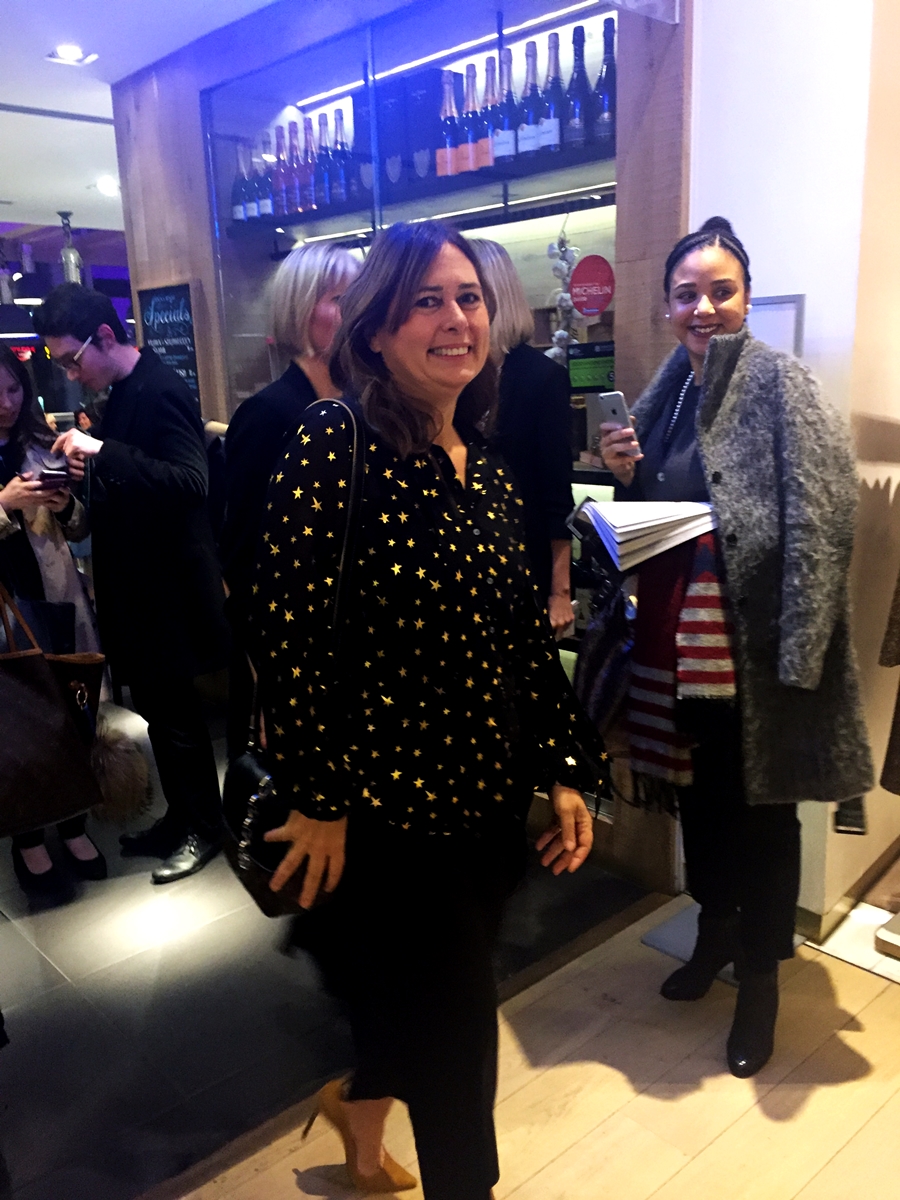
Alexandra on the next Kate Moss:
A: I’m not sure there will be another model that can be that person but there are other models. Cara Delevigne has a huge following, she has people buying magazines for her and she’s got the same kind of power which hasn’t been around a lot. What’s interesting is, for covers, people want models they are interested in. Not just to think they look good but to be interested in them as a personality, they have to have some kind of story.
Alexandra on the pressure to find the next Good Idea:
A: I think everybody in every job thinks, you’re only as good as the next thing you do well. As soon as you achieve something, the awful truth is that’s history and it’s on to the next thing you’re going to achieve that is your currency. On a magazine where you are doing it twelve times a year that can be quite relentless but it’s also why I have been at Vogue so long because I get to come up with new ideas. The challenges make it interesting. For me now, the main thing I can do is look at how the digital arm of Vogue can really start to make money and combat this idea that everything digital should be free and have instant free access. We do make money digitally but it’s nothing like the revenue driver of the print magazine so I’d like to find a good idea around that.
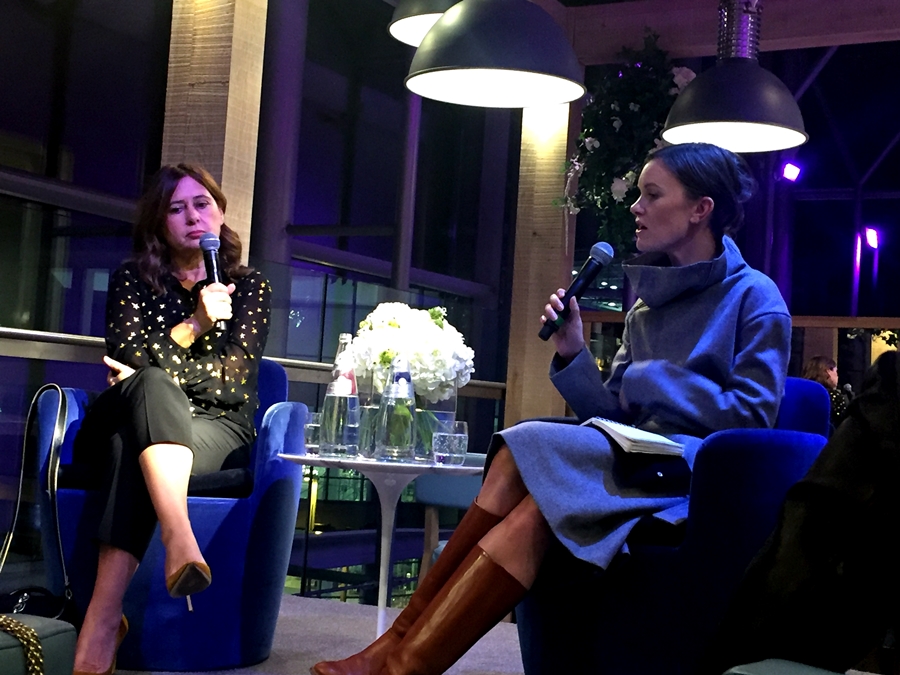
Alexandra on Giving Advice for Aspiring Magazines:
A: I you’re going to make a print magazine you have to have something people want . You’ve got to tell the stories interestingly and the quality of the observations you make are really important. Imagery is interesting as well, but I feel like people only go to print to have something they can treasure in some way so there has to be something high end about what you do and it can’t be too disposable.
Alexandra on Vogue for the older generations:
A: I can’t see why Vogue wouldn’t be relevant to older generations. Vogue in my mind is a kind of mindset and I don’t think it’s about an age group. My mum is 90 and even if I wasn’t editing the magazine she would still buy Vogue because she’s interested in looking at it to see what’s happening in the world of fashion. That’s Vogue has always been. Vogue’s territory is to be a reporter of what’s happening.
Alexandra on Celebrity Cover Stars:
A: You’ll be interested to know the Rihanna cover sold very badly but the Cara Delevigne September issue sold extraordinarily well, so it can be different (featuring current celebrities). We have to show what we are interested in. I can take a view on who I really don’t want to feature and I’m not going to say but there are people who again and again ask to be on the cover and I won’t have them because I don’t think they’ll be of interest but they might be a short term celebrity, celebrity is not a barrier to being in Vogue. Vogue is about those people who get that spotlight on them for a period of time as well as people who have got careers.
Alexandra Shulman’s Inside Vogue: A Diary of My 100th Year is available from 27th October and further information on this event and more can be found at Selfridges.

